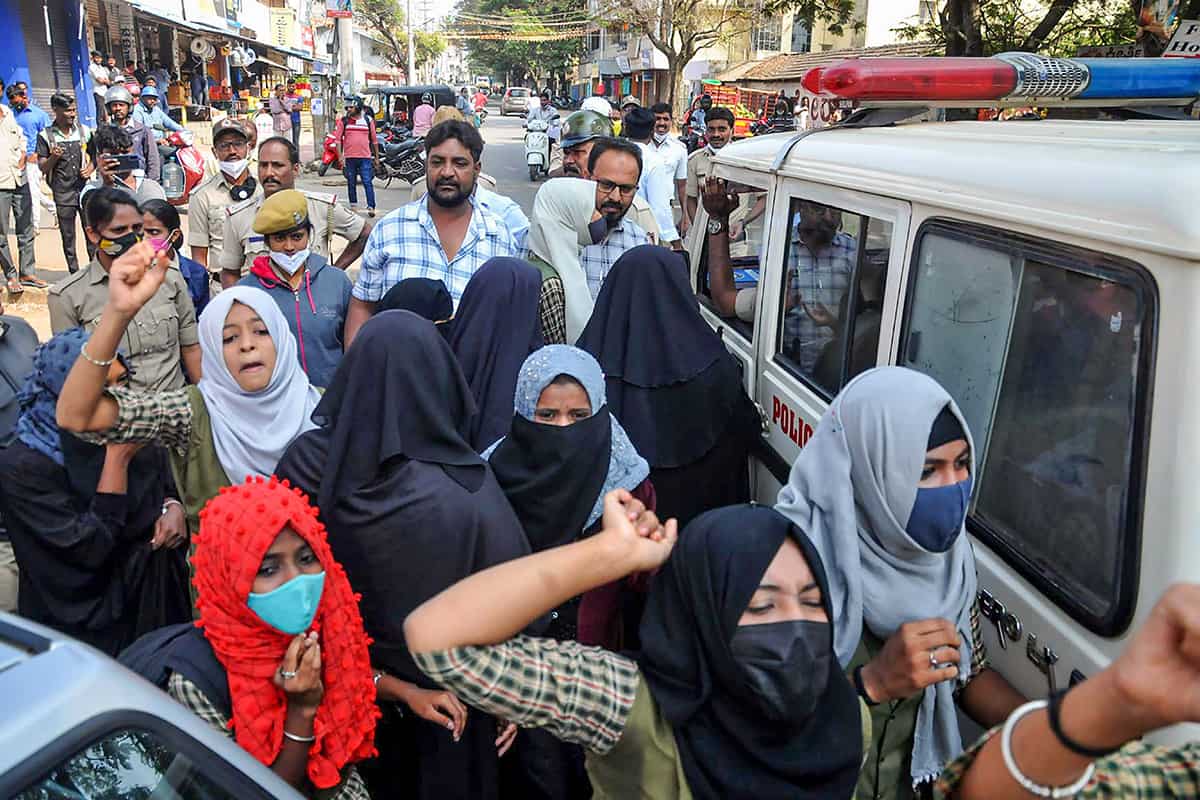
In the ongoing hijab row case heard by a special bench of the Karnataka high court, the Advocate general on behalf of the state has argued that the hijab is not an essential religious practice of Islam.
After over a week of petitioners argument being presented in the high court, the respondent i.e, the state represented by the AG commenced their argument today. Advocate General Prabhuling Navadgi stated that the practice of hijab which has now been propounded must pass the test of Constitutional morality and individual dignity like it did in the Sabarimala case.
Quoting Justice Dixit back to the bench, the AG further argued that “Orders (like the government order imposed by the government of Karnataka) must be read as they are, as a plain reading and not as a statute.”
Arguments made by the AG:
“At prima facie (on the face of it) value, the GO does not strip away the rights of the petitioners enshrined in Article 25 of the constitution,” he said.
Navadgi said that “If the state wanted to argue that the hijab would be a threat to communal harmony, they could. But did not. The attack that the GO is irrational or is discriminatory against Muslim women is baseless as a plain reading of the same affects nobody’s rights.”
The AG further said that Article 25 has two parts: right to preach, practice, and propagate one’s religion and secondly, freedom of conscience. As such, he said, rights can be enforced. However, one’s freedom of conscience is one’s own and a state cannot enforce it.
When asked about the intention behind introducing freedom of conscience during the drafting of the Constitution, the AG said that Dr BR Ambedkar did so, to assuage worries that freedom to propagate would result in the supremacy of one religion.
The AG concluded his remarks by stating that he would continue discussing on why the hijab is not an essential religious practice on Monday.
Background of the hijab row:
The hijab row started a month ago when female Muslim students were denied entry into a pre-university government college in Karnataka’s Udupi town. The reason offered by the administration was that the students adorned in hijabs were violating the dress code of their institute. The students on their end stated that the hijab was an integral part of their religion and as such affirmed their right to practice their faith.
The hijab row soon made its way into other parts of northern Karnataka where right-wing students as well as, Muslim women (supported by Ambedkarite and Muslim student activists) protested against and in favour of the hijab respectively.
On February 10, the Karnataka High court stated that all educational institutions shall be reopened, and students can attend classes in keeping with the dress code (ie. without their hijabs).

